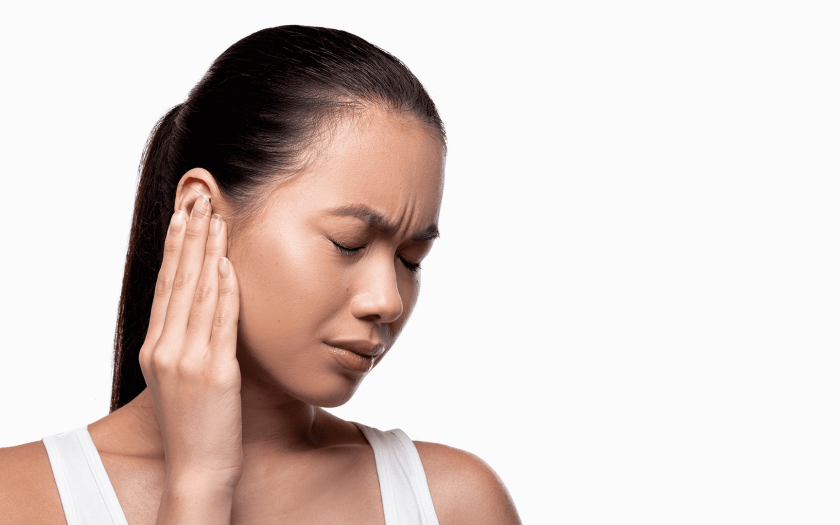Wear hats or headbands in cold weather.
When treating otitis media during cold weather, wearing hats or headbands is very important for maintaining warmth around the ears. Cold air can worsen the condition, intensify pain, and contribute to complications, as inflamed ear tissues become sensitive to temperature fluctuations. Leaving the ears unprotected can exacerbate the inflammation and even lead to chronic otitis. Additionally, winter weather is often accompanied by wind, rain, or snow, which can cause moisture and dirt to enter the ear. A hat or headband acts as a barrier, protecting against these external factors. Prolonged exposure to cold can also reduce oxygen and nutrient supply to the affected tissues, slowing recovery. When the ears are kept warm, spasms are reduced and pain decreases, creating favorable conditions for healing. Choose hats and headbands that do not apply too much pressure on the head, and opt for those made with fewer synthetic fabrics.
Avoid exercise during treatment.
It is recommended refraining from exercising while undergoing treatment, as physical exertion can worsen the condition and slow the healing process. Physical activity increases the risk of injuring the ear or allowing water and dirt to enter the ear canal, which can aggravate the inflammation. Sports activities can also raise blood pressure, affecting circulation in the inflamed ear, which may intensify pain or contribute to complications. Therefore, it is best to allow your body to fully recover before returning to active physical exercise.
Avoid sweets.
When treating otitis media, it is recommended limiting the consumption of sweets, as sugar can exacerbate inflammation in the body, making the healing process more difficult. High sugar levels negatively affect the immune system, reducing the effectiveness of the body’s defense mechanisms. Moreover, many sweet products contain artificial additives and preservatives that can trigger additional allergic reactions or irritation, which can worsen the condition. By limiting sweets, you can help the body cope with the illness more quickly and avoid complications. Choose healthier sweet options, such as date and orange peel bars or dried fruits.
Change bedding frequently, especially pillowcases.
It is important to change bedding frequently, especially pillowcases, when dealing with this illness because bacteria, viruses, and other microorganisms can accumulate on the bedding and worsen your condition. If pillowcases are not changed regularly, microbes can transfer to the ear, especially if the person touches their ear or face frequently while sleeping, increasing the risk of reinfection or complications. Additionally, during illnesses like otitis, the body is weakened, and the infection may spread more quickly. Therefore, it is important to maintain cleanliness in the environment to reduce the likelihood of harmful microorganisms coming into contact with the skin or entering the body. Frequent changes of bedding help create a clean and safe environment for faster recovery.
Do not use ineffective drugs.
An inflamed ear is very sensitive, and any incorrect treatment can cause irritation or worsen the inflammation. Additionally, using inappropriate substances can lead to the development of an infection or even damage to the eardrum if it is already compromised. Under no circumstances should you use folk remedies for treating otitis, as in most cases they can only make the situation worse. Use only the drops and medications (for example Cilicaine VK, Cefdiel) intended for the treatment of otitis.

